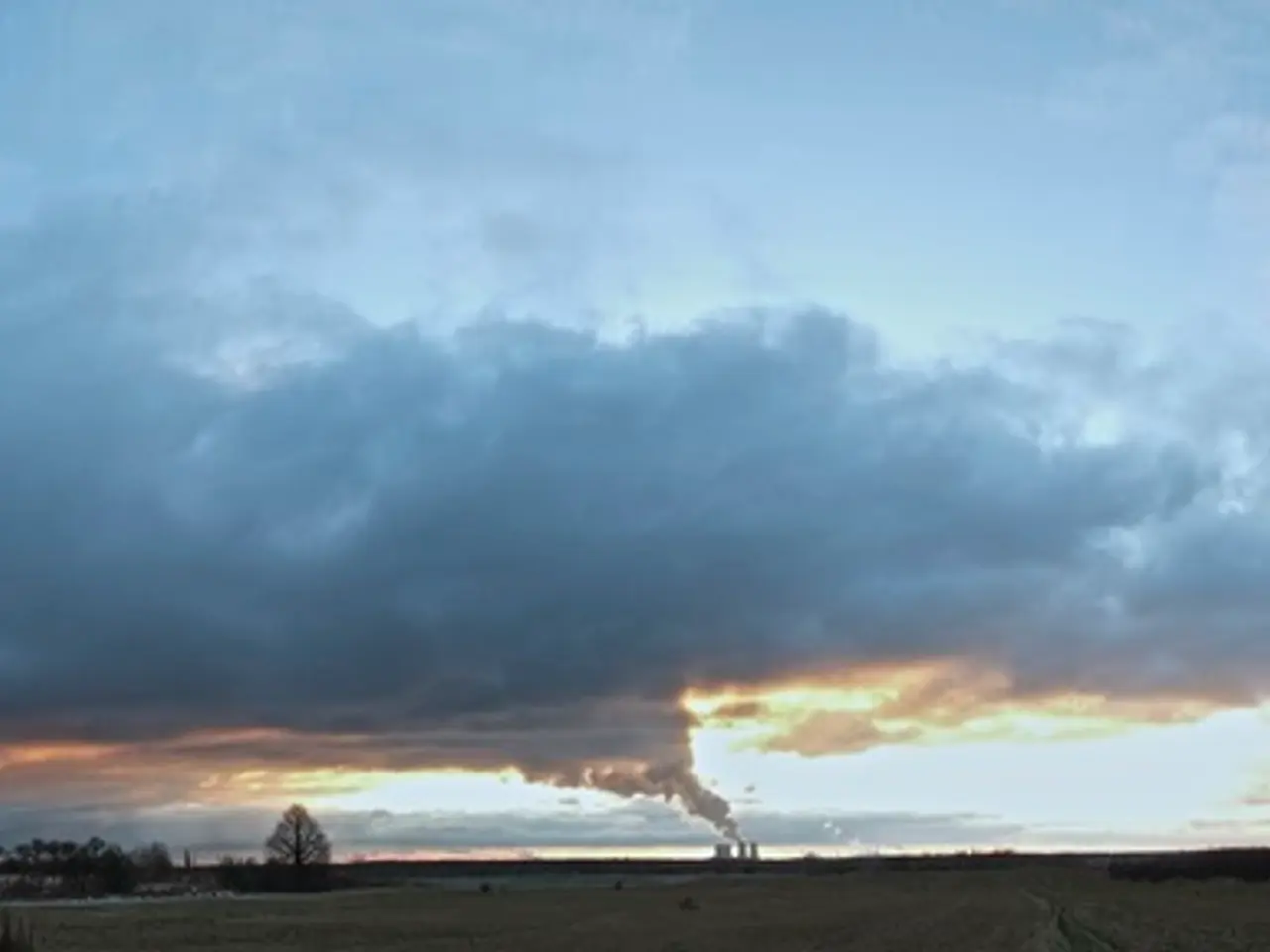Tobacco-like smoke from wildfires contaminates the air, spreading pollution worldwide, according to the United Nations.
In 2024, the world witnessed a significant impact on air quality due to wildfires. Countries like India, China, and parts of Southeast Asia recorded the highest levels of PM2.5, tiny particles that are particularly harmful as they can penetrate deep into the lungs or cardiovascular system.
The wildfires were not limited to these regions. They also caused above-average PM 2.5 levels in Canada, Siberia, and central Africa, as well as the biggest PM 2.5 surge in the Amazon basin. The fires in the Amazon, Canada, and Siberia demonstrated the potential for air quality to be affected on a vast scale.
Tiny particles called aerosols, which play a role in wildfires, winter fog, shipping emissions, and urban pollution, were a major concern. These particles can travel long distances, as evidenced by the wildfires in Canada causing air pollution in Europe.
Wildfires release a "witches' brew" of pollutants that can affect air quality on a continent away from the blaze. The World Health Organisation estimates that air pollution causes more than 4.5 million premature deaths each year, underscoring the urgent need to address this issue.
According to the WMO, the wildfire season is becoming stronger and longer every year due to climate change. The UN's weather and climate agency, the World Meteorological Organisation, stated that the quality of the air people breathe is interlinked with climate change.
The WMO's fifth annual Air Quality and Climate Bulletin emphasises the interplay between air quality and the climate. The bulletin serves as a reminder that wildfires, air pollution, and climate change are all interconnected issues that require global cooperation to address.
In conclusion, the 2024 wildfire season underscored the urgent need to address air quality issues and their link to climate change. The WMO's Air Quality and Climate Bulletin serves as a call to action for governments, organisations, and individuals to work together to mitigate the impact of wildfires on air quality and climate change.
Read also:
- Peptide YY (PYY): Exploring its Role in Appetite Suppression, Intestinal Health, and Cognitive Links
- Toddler Health: Rotavirus Signs, Origins, and Potential Complications
- Digestive issues and heart discomfort: Root causes and associated health conditions
- House Infernos: Deadly Hazards Surpassing the Flames








